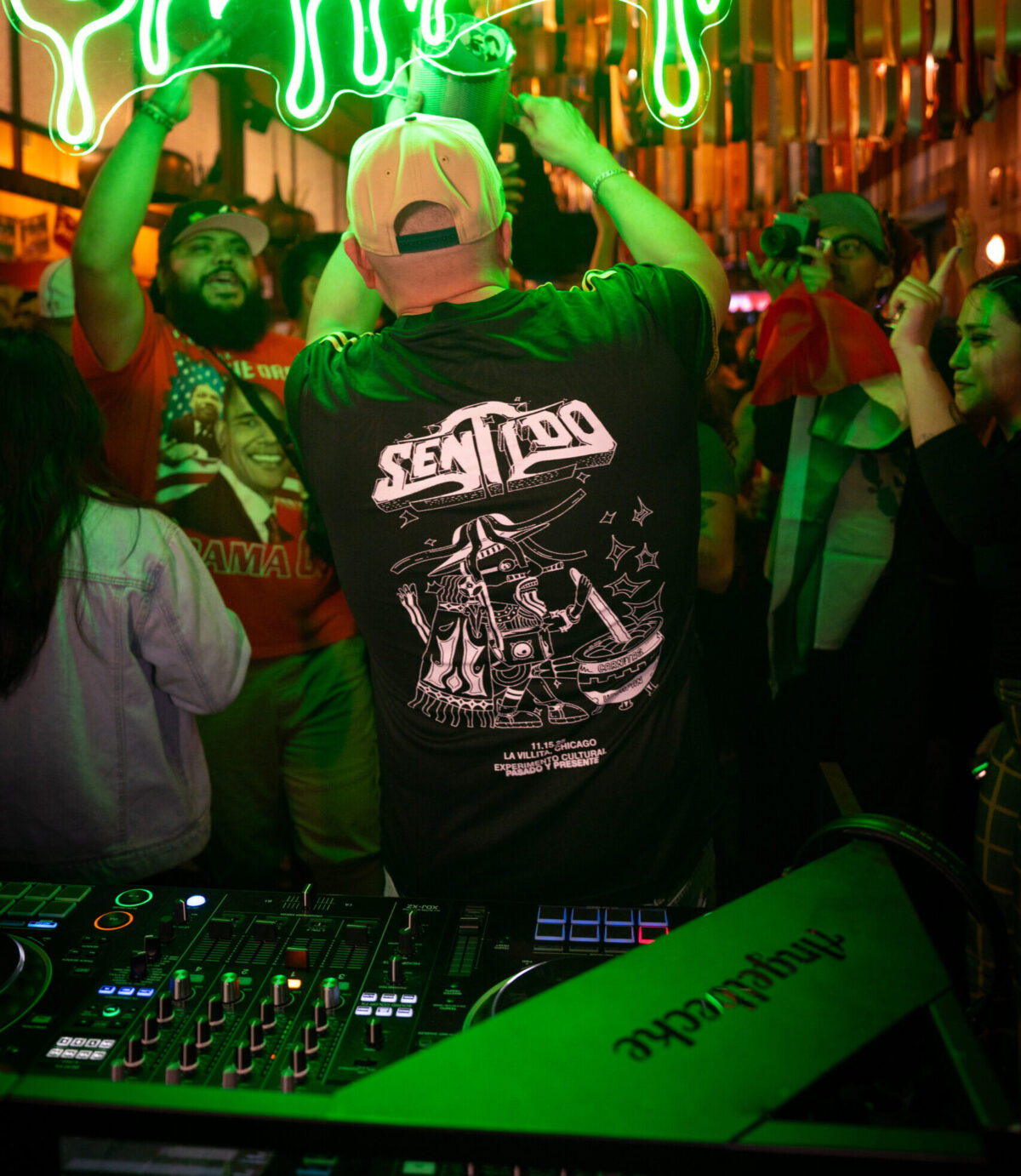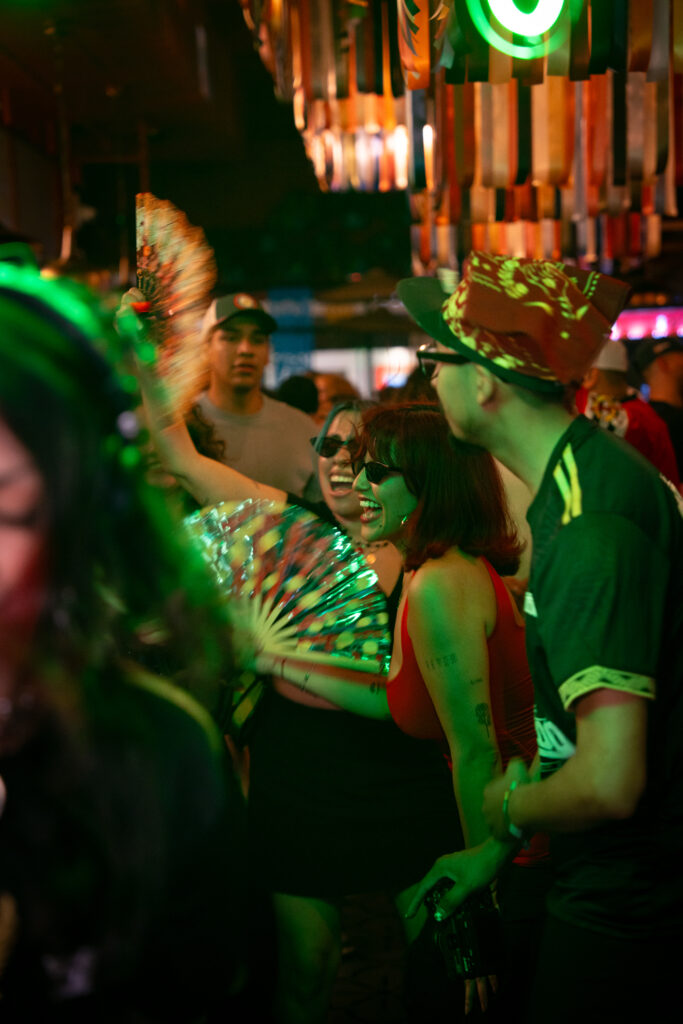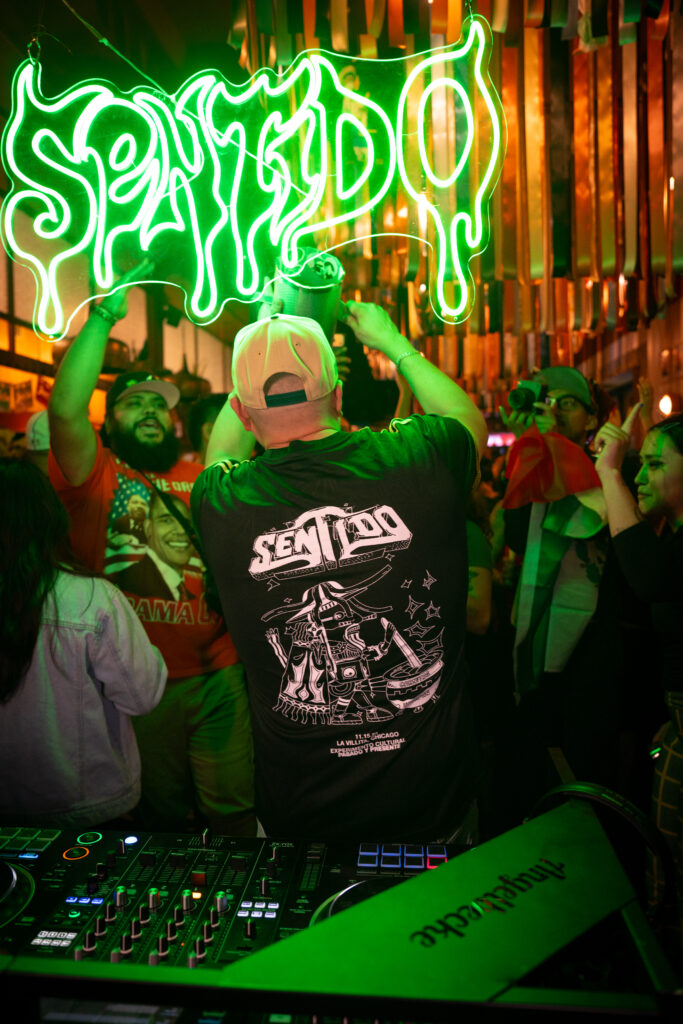On a recent Saturday afternoon at the corner of 26th St. and Hamlin Ave., a line wrapped around Las Carnitas Uruapan for the fourteenth iteration of Sentido, a pop-up series dedicated to honoring deeply rooted Latino-owned businesses and culture across the city.
At the core of the series, whose inaugural event took place earlier this May, is a simple ethos—Experimento Cultural: Pasado Y Presente. Bridging the past and the present, Castillo wants to give flowers where flowers are due to beloved staple locations while inviting newer generations to enjoy what our predecessors have established.
“I wanted to create something that was missing in Chicago,” Sentido founder Oscar Castillo said.
Sentido has appeared in locations such as Lily’s Record Shop in Humboldt Park, Carniceria Maribel in Pilsen, and Carnitas Uruapan in Little Village—making the pop-up schedule a roving exploration of the vast Latino communities that make up the city, from Colombian to Puerto Rican and Mexican establishments.
“It’s very important now to create our own spaces, instead of trying to take up spaces that weren’t meant for us,” Castillo said. “[People] don’t realize that you have the ability to thrive in your own space.”
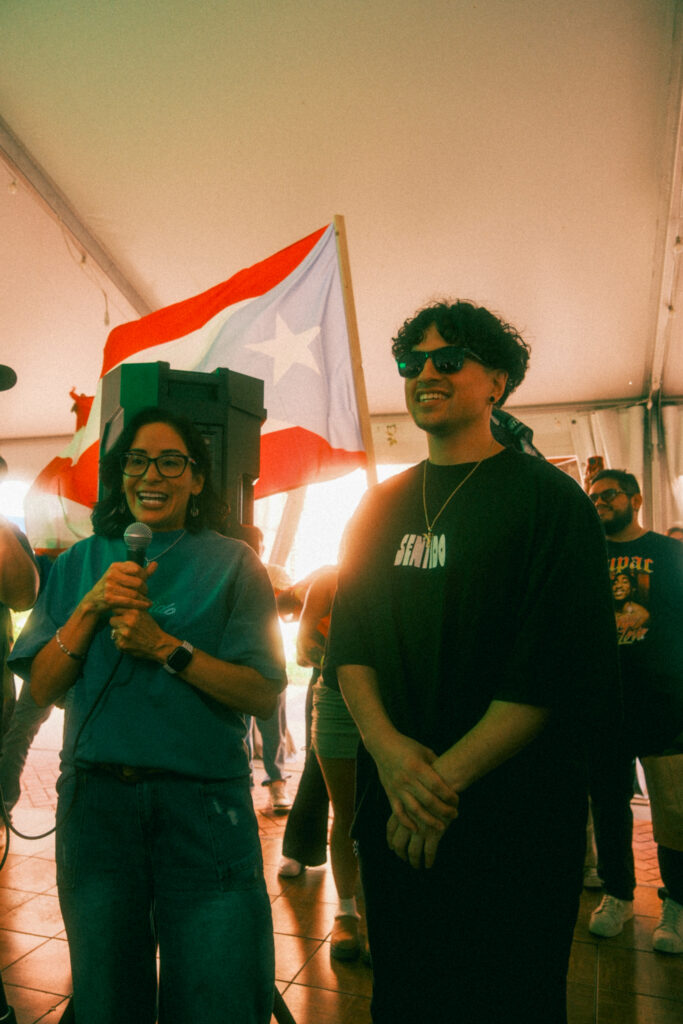
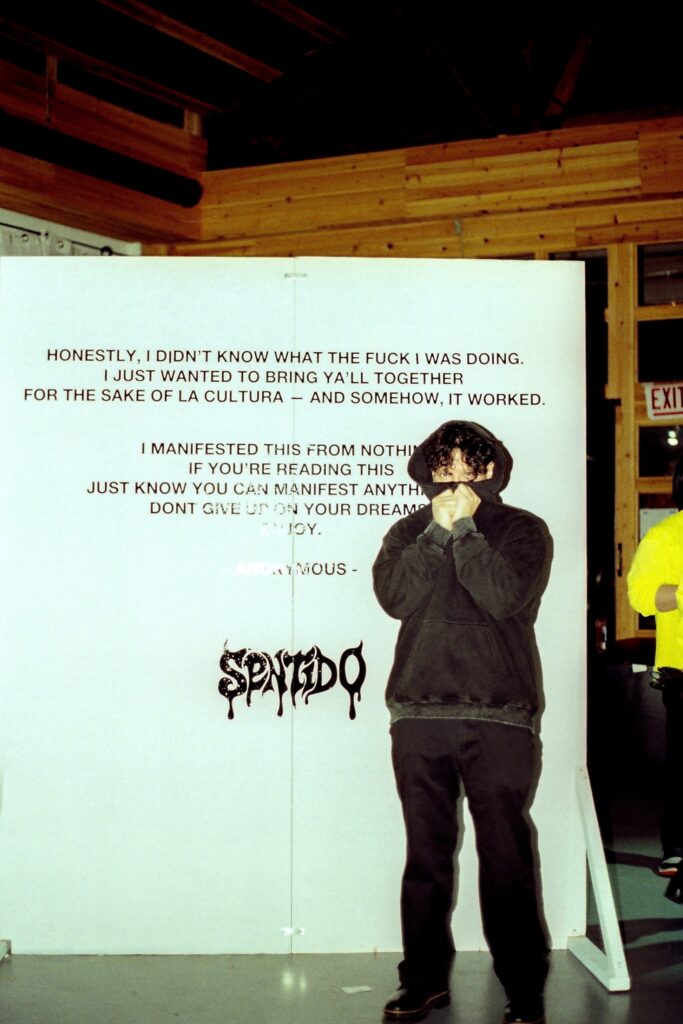
Castillo, who is from Chicago and has Salvadorian roots, knows a thing or two about creating spaces for Latinos and alternative culture. With a background in sports photography, Castillo founded online sneaker and streetwear news platform Modern Notoriety in the early 2010s. Modern Notoriety would go on to host events with big names like Nike, New Balance, and Adidas, amassing over one million followers on Instagram. Leveraging his background in event curation and his strong industry relationships, Castillo turned his attention to giving back to his community, personally funding Sentido.
Sentido events are a celebration of joy and resistance. Prior to the event, a camera crew documents the story and the legacy of the partner venue. Castillo invites DJs and beverage sponsors, and collaborates with local artists to create a unique design for each event. The artwork is used to market the event and printed on T-shirts or jerseys that are given to attendees who spend more than a specified amount at the hosting establishment. At Carnitas Uruapan, the first one hundred customers to spend $25 received a jersey.
“The business makes the revenue that they might have missed out on because of what is currently happening; that allows them to last a little bit longer,” Castillo said, referencing the dip in sales Latino business have been experiencing due to the fear generated by the recent abductions by ICE and Border Patrol agents.
“At the start of Operation Midway Blitz from one week to another, our sales dropped 35 to 40 percent,” second generation Carnitas Uruapan owner Marcos Carbajal said.
Carbajal, who grew up working the family business at their first location in Pilsen, said that their Little Village location, which opened at the start of the year, has seen a stark difference in business. Little Village has been one of the most targeted neighborhoods by ICE and the epicenter of resilience. Community members have mobilized to lead patrols and distribute warning whistles while students have organized school walkouts, demonstrating the deep solidarity that runs through Chicago.


“There’s a great silver lining here. I’ve never seen so many allies and people from other cultures and other neighborhoods take to the streets of neighborhoods on the weekends. It’s starting to become a noticeable effect when you walk around Little Village,” Carbajal said.
For collaborating artists, including my friend and colleague Brian Herrera, who created the Carnitas Uruapan x Sentido jersey, this becomes an act of defiance. He uses his creativity to honor and uplift the neighborhood that shaped him.
“I consider my art a tool. It feels like this is the best way that I could help the movement directly,” Herrera said. “The best protest that we can do is [give] our money to the businesses that are being hurt.”
Herrera said his work directly aligns with Sentido’s mission. Grounded in his roots, he draws from Mesoamerican aesthetics and reinterprets them through a contemporary lens. In a nod to Afrofuturism, he calls this approach mesofuturismo, a framework that combines ancestral visuals with modern identity. Herrera’s design for Carnitas Uruapan is a reference to la danza de los viejitos, a traditional folkloric dance from the state of Michoacan, Mexico.
“The figure itself, with the posture and even some of the symbolic things that the illustration is holding, it’s specifically the Aztec god of fire, which is the oldest god, going back to the Olmecs,” Herrera said. “And I thought that it was just so fitting to incorporate that into the whole concept.”
The figure is standing above a cazo de carnitas stirring the meat over an open fire. It’s the traditional way of making carnitas from Michoacan—and the way Carnitas Uruapan has been making their meat since 1975 when Carbajal’s dad, Inocencio, first opened their doors. Fifty years later, Carnitas Uruapan is a taste of home to many immigrants that make up the backbone of the city, and a connection to cultural heritage to the thousands of first-generation Mexican Americans.
“[Sentido is] exposing us to a different, younger demographic, which is really important. We’ve been around for fifty years,” Carbajal said. “We got to constantly stay relevant and reinvent ourselves and keep ourselves relevant to to a younger audience if we want to be here for another fifty years.”
Beyond driving business, Sentido upholds and empowers existing spaces reminding us all that we don’t need to look elsewhere to be represented, supported, or inspired.
“For me, it’s a cultural responsibility, and when I do this, it’s met with gratitude,” Castillo said. “They greet me with open arms because they know that it’s much deeper than just us doing a pop-up for these businesses to survive.”
For Sentido, this is just the beginning. With events being planned month-to-month, Castillo foresees the programming to continue onto the new year. The community should keep a close eye on their social media for updates.
Outside Carnitas Uruapan, a pig dressed in a sarape welcomed guests. DJs mixed reggaeton and norteñas, and Little Village’s DJ Wero tapped the güiro along to cumbia’s nostalgic heartbeat. People danced with friends, Mexican flags waving above them. For Castillo, creating Sentido is his own version of raising the flag.
“You can’t have sunshine without a little rain, because even though all this is happening, you still need to be able to stand your ground and represent and do as much as you can to preserve culture.”
Jocelyn Martinez-Rosales is a Mexican American independent journalist from Belmont Cragin committed to telling stories from communities of color through a social justice lens. She is also a senior editor at the Weekly.

